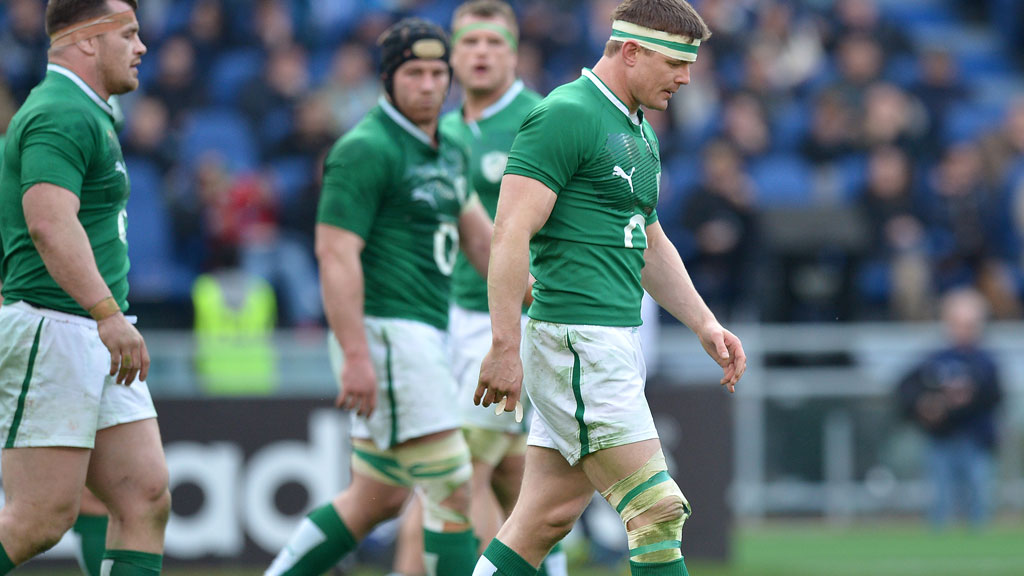Six Nations 2014: the players to watch
Wales are looking to clinch their third consecutive Six Nations title, but a raft of new players and some old hands are out to upset the party.

Ireland’s stalwart – Brian O’Driscoll
It’s hard to avoid the words talisman and legend when describing Ireland’s leading try scorer and veteran captain, so why bother trying? Brian O’Driscoll was controversially dropped for the final Lions test against Australia last summer, but in his final Six Nations season will pose a daunting threat to any opposing backline.
He commands a team that lost to New Zealand by a whisker in November, leading the for the full 80 minutes after some fierce rugby before the All Blacks scored a last-ditch try as only they can. If Ireland can reproduce the same precise brutality over the next few weeks, the championship is theirs for the taking.
If O’Driscoll plays enough matches in this year’s tournament, he will surpass the record for international caps held by Australia’s George Gregan, which currently stands at 139. Forever mazy and confounding expectations, at 35 years old O’Driscoll may yet have a couple more surprises up his sleeve.
England’s new look fly-halves
Making bold selections has become a habit for England coach Stuart Lancaster. This time round he’s dropped the misfiring Chris Ashton on the wing – England’s try machine when he first arrived on the scene in 2010 – bringing in youngsters Jack Nowell (uncapped) and Jonny May (one cap) to form England’s new-look wing partnership.
Centre Luther Burrell will also make his international debut, but the most significant changes come at fly-half. While Owen Farrell remains first pick, Toby Flood is dropped due to his imminent move to France, and two newcomers fill the back-up spots in England’s 35-man training squad: George Ford, who has long threatened to break into the England set-up, and rugby league convert Stephen Myler.
But Ford and Myler will need to wait for their chance to shape England’s fortunes, because Lancaster has been bolder still – opting for Farrell as his only specialist fly-half in the squad that will play the opening clash against France, leaving part-time fly-halves Alex Goode and Billy Twelvetrees to offer cover. While England’s pack remains unchanged since their last outing in November, Lancaster is plainly still working hard on a backline to match the best at the 2015 World Cup.

The Welsh rock – Leigh Halfpenny
The imperious kicker and attacking full-back was central to Wales’s Six Nations win last year, and to the Lions victory last summer. Something of a reluctant hero – he is reputedly happier practising his kicking than basking in the limelight – Leigh Halfpenny should bring stability to a Welsh set-up struggling to cope with an expected exodus of home-based players to France, whose clubs operate without salary caps.
Welsh players provided the bulk of the Lions squad and will be determined to repeat their Six Nations wins in 2012 and last year. Halfpenny himself is on his way to French side Toulon, but his on-pitch presence and near flawless kicking should give his team mates a solid platform to build from.

Scotland’s Lions
Just four Scots were chosen for the Lions squad last summer, and of those only Richie Gray won a cap – coming on for a mere four minutes at the end of the third test. Wales coach Warren Gatland – who also picked the Lions down under – expects Scotland to be dangerous after their perceived snub, and their reinvigorated team could certainly cause trouble in this year’s championship.
One of Scotland’s Lions, full-back Stuart Hogg (pictured above), impressed in the their mid-week matches and has been in fine form for his club Glasgow. He could be crucial to his team’s fortunes, despite missing out on the autumn tests through injury.
It’s easy to forget that Scotland came third in last year’s championship. Their coach Scott Johnson admits his side is not the finished article, but has his heart set on causing a few upsets.
France’s new wave
Injuries to several key players have forced French coach Phillip Saint-Andre to bring in a batch of debutants to the squad, meaning that France will be even more unpredictable than usual.
The casualties include captain Thierry Dusautoir, the central figure of the pack, and scrum-half Morgan Parra, one of the decisive forces in the backs. But Saint-Andre may hope to turn the crisis to his advantage, bringing in the uncapped 22-year-old Jules Plisson at the troubled fly-half spot for the first game – he may yet call on newcomers Geoffrey Palis or Hugo Bonneval at full-back.
France will be desperate to avoid coming last again after their 2013 wash-out, and their new clutch of last-ditch replacements may take a few teams by surprise.

Italy’s centurion – Sergio Parisse
Italy’s stalwart captain and no.8 won his hundredth cap in the autumn internationals, and Sergio Parisse likely to be central to his team’s success once more as the Italians try to repeat their shock wins against Ireland and France in 2011.
Coach Jacques Brunel faces his third Six Nations and will take pride in a solid set of forwards, but his stuttering backline will still be cause for concern.
Italy have been a growing threat for years and often force teams to abandon their gameplans by sucking them into a forward battle, but they may struggle to break through this time round.